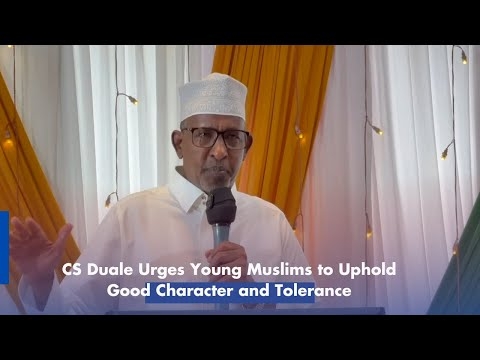

Over the years, in my many political commentaries, I spoke about the former Prime Minister of Kenya only a couple of times. As an adult, I found that my political views and his did not align.
He was not a leader I would have chosen. But in my observations, I always noted that he was a key player in the democratisation of our country. However, just because someone was a freedom fighter does not make him worthy of leading. He had earned his spot in our history as a rebel who fought for the rights of the Kenyan people.
As I watched Kenyans lament on the streets, I was a little confused. Just a few months ago, Kenyans had been going on and on about how Raila Odinga had betrayed the people and how they felt let down by his alliance with the current government. Were their feelings valid or was this hypocrisy at its finest?
I decided to do a little more digging. There has never been a bigger critic of a living Raila Odinga than Miguna Miguna. The man who swore in Raila Odinga as the People's President during Uhuru's last term. The man who claimed to have been betrayed when he was unceremoniously deported from the country without help from his comrade.
Surprisingly, Miguna himself was also humble about the news. When asked why he did not call the deceased names like he normally did, he said, "I don't mourn him as a hero. Just as a human being.” And I remembered my mother’s favourite Shakespearean quote of all time; “I come to bury Caesar, not to praise him.”
It made me think about the bigger questions of death, who mourns us and how we are remembered when we are gone. How easy it is for us to forget the wrongs of people and to absolve their wrongdoings with death.
There are those who do a little good and get heroism for life. Rosa Parks sitting in a bus made her a historical figure. Mahatma Gandhi is revered the world over but the pages in his book are not squeaky clean. Even a wheelchair-bound Stephen Hawking found ways of cheating on his wife.
But nobody seems to remember the bad, everyone sings praises of the deceased as though they lived an exemplary life. Meanwhile the likes of Adolf Hitler are damned in the pages of history for the rest of time. But, when you dig through the lives of such people, you find modern inventions and infrastructures that were initiated by them. I was in my thirties when I found out that Hitler started Volkswagen and set the blueprint of the Autobahn that is still being used in the German road industry.
There are those who do so much evil but it is hushed away into the darkness of absolution. King Leopold II killed so many Congolese people and unleashed a world of terror in that country that the Belgians themselves work overtime to hide the real history. The British will die denying the horrors Elizabeth I and Victoria unleashed on British colonies. Just because these people are dead, do we pick and choose what we remember them for?











![[PHOTOS] Elgeyo Marakwet landslide victims arrive in Eldoret for care](/_next/image?url=https%3A%2F%2Fcdn.radioafrica.digital%2Fimage%2F2025%2F11%2F425460d9-7ff1-4975-8a1f-cd0aaefb7812.jpg&w=3840&q=100)

